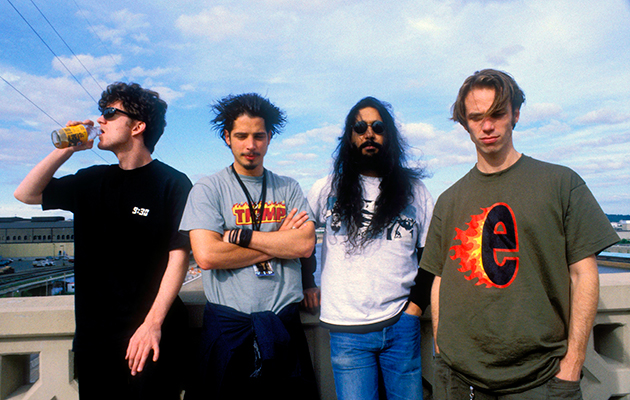A sombre, psychedelic ballad that became an international summer smash for the Seattle grunge rockers in 1994. "That’s what people connected with, the sound that is the result of a band effort," says Chris Cornell. Words: Peter Watts. Originally published in Uncut's August 2014 issue (Take 207). ...
SHEPHERD: This was the first time you could morph videos, like melt the screen. That was a big deal. The video really pushed it. It was a winning combination. I didn’t think it would be that big a hit, not on that level. I became quite petulant about it. I stopped us playing it live. We were reticent about being the band that played the hit song.
THAYIL: The rest of us would wipe the sweat off our foreheads and have a beer while Chris played it acoustically. It was a way to keep it fresh.
CORNELL: It was a good song for us to have as an international hit because it defied categorisation on just about every level. It’s a moody, sombre song but it was a summer smash and the look of the video helped, with that eerie springtime thing. It creates a feeling, but I can’t tell you specifically what it is about. And if I can’t, how is somebody else going to connect to it? Maybe it’s just open enough that people can make it a soundtrack to their moment.
BEINHORN: It hit a very strong emotional chord. People make their own connections with it. Some people thought it was about Kurt Cobain dying.
CORNELL: I understand it even less now, and I’m baffled by what other people think about it. I listen to Paul Anka and he really gets into it, he’s digging for an emotional connection and he seems to be getting it, and that’s interesting to me because whatever mine is, it’s more personal than intellectual.
BEINHORN: When I first heard it I was profoundly disturbed. It’s like the key to an emotional door in someone’s psyche. It’s great that Chris can’t make that connection as it shows where the song came from. That phrase, black hole sun, opened the floodgates.
CORNELL: What’s interesting to me is the combination of a black hole and a sun. A black hole is a billion times bigger than a sun, it’s a void, a giant circle of nothing, and then you have the sun, the giver of all life. It was this combination of bright and dark, this sense of hope and an underlying moodiness. I even liked the way the words looked written down. I liken it to Syd Barrett-era Pink Floyd, where there’s a happy veneer over something dark. It’s not something I can do on purpose but occasionally it will happen by accident.
BEINHORN: It shows how songwriters tap into something that’s out there, like good antennae. It’s a work of art, something that comes purely from the unconscious mind.



